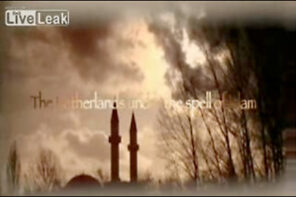On Tuesday, September 19, the Nobel Peace Prize Laureate Aung San Suu Kyi delivered a speech in English to the international community. In the speech, she explained that her nascent democratic government was hard at work to rectify systemic nationwide problems due to decades of neglect. She also addressed the current crisis in which over 420,000 Rohingya have fled across her country’s borders to Bangladesh over the last several weeks.
I am aware of the fact that the world’s attention is focused on the situation in the Rakhine State. And, as I said at the General Assembly last year, as a responsible member of the community of nations, Myanmar does not fear international scrutiny, and we are committed to a sustainable solution that would lead to peace, stability and development for all communities within that state…. Since the 5th of September, there have been no armed clashes, and there have been no clearance operations. Nevertheless, we are concerned to hear that numbers of Muslims are fleeing across the border to Bangladesh. We want to find out why this exodus is happening.
As State Counsellor for her government, Aung San Suu Kyi’s words are, at the minimum, disturbing. In her speech, she cites several times Kofi Annan’s final report of the advisory commission on the Rakhine State. On the very first page of the introduction, the report states “the Muslims in Rakhine constitute the single biggest stateless community in the world,” that 120,000 Rohingya have been left in camps for Internally Displaced People (IDP), and that “the community has been denied political representation, and is generally excluded from Myanmar’s body politic.”
Meanwhile, over 420,000 Rohingya have managed to escape Myanmar, though they have no place to stay. Bangladesh wants to return them to Myanmar. Bangladesh’s Prime Minister Sheik Hasina explained that her government has tried to diplomatically work with Myanmar to take back the refugees: “But the Myanmar government is not responding to the calls. Rather, Myanmar is laying landmines along the border to stop the return of Rohingyas to their homeland.”
Three years ago, Nicholas Kristof identified the IDP camps as the modern equivalent of concentration camps. Yet, Aung San Suu Kyi expressed ignorance over why close to half of the one million Muslims in Myanmar fled across her country’s borders within a matter of weeks.
While it might seem strange for a Nobel Peace Prize Laureate to turn a blind eye to religious and ethnic cleansing, it is not unique. In my forthcoming book If You Meet the Buddha on the Road: Buddhism, Politics, and Violence, I explore this phenomenon. One of the causes for Aung San Suu Kyi’s blindness to the current violence is her fetishist disavowal of the Rohingya. In his book Violence, Slavoj Žižek argues that people have a tendency to overlook a particular group or community in our ethical systems. It is a conscious effort—so persistent it acts as a fetish—to avoid reflection and consideration. Everyone has blinders within their ethical index.
I encountered a striking example of fetishist disavowal when I was teaching at a small liberal arts college in Florida. During the winter short term, I had the privilege of working alongside Elie Wiesel, a Nobel Peace Prize Laureate and famous human rights activist. Surviving the Jewish Holocaust at the age of 16, Wiesel chronicled his tormenting past in the award-winning novel Night. He became a professor of the humanities and won the Nobel Peace Prize in 1986. The Norwegian committee declared that Wiesel was a “messenger of mankind.” During his acceptance speech, he stated:
We must always take sides. Neutrality helps the oppressor, never the victim. Silence encourages the tormentor, never the tormented. Sometimes we must interfere. When human lives are endangered, when human dignity is in jeopardy, national borders and sensitivities become irrelevant. Wherever men or women are persecuted because of their race, religion, or political views, that place must – at that moment – become the center of the universe.
While Wiesel appeared to advocate for human rights everywhere, he had a blind spot for Palestinians. In the summer of 2014, Israel launched the Israeli Operation Protective Edge and attacked Palestinians living in Gaza. Between July and August, over 2,100 Palestinians died, 1,500 of which were civilians. Near the end of the conflict, Wiesel promoted an advertisement praising Israel which ran in The New York Times, Washington Post, and Wall Street Journal. In it, Wiesel writes, “What we are suffering through today is not a battle of Jew versus Arab or Israeli versus Palestinian. Rather, it is a battle between those who celebrate life and those who champion death. It is a battle of civilization versus barbarism.”
During one of my winter terms courses, my students began to question Wiesel on his Palestinian stance. They found that he held a non-negotiable position on the subject; Wiesel was immovable. While Wiesel was an ardent supporter of human rights for all other cases in the class, he assumed a very different position when it came to the Palestinians. Wiesel had a fetishist disavowal for Palestinians.
In her September 19 speech, Aung San Suu Kyi argued that she and her country “condemn all human rights violations.” But for some reason, her ardent advocacy of human rights did not include the Rohingya. This fetishist disavowal is by no means exists in a vacuum; while the Western media is quick to discuss Islamic terrorism, there is a hesitancy to call out the persecution of Muslims.




